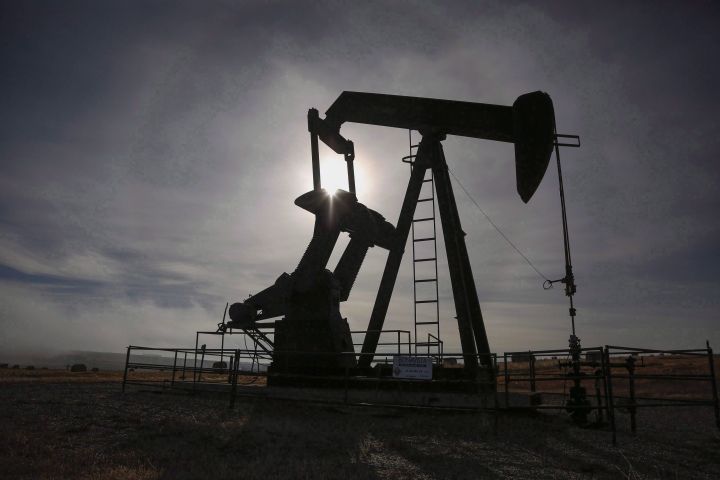Pengrowth Energy Corp. has launched a strategic review of options that could include the sale of the company after failing to renegotiate its high debt load amid plunging western Canadian oil prices late last year.

The Calgary-based company, which has reduced production at its key Lindbergh steam-driven heavy oil project in eastern Alberta to comply with the province’s oil curtailment program, said Wednesday it has hired advisers to assist with the process.
READ MORE: Alberta eases oil production cap by 75K barrels per day
Watch below: (From Jan. 30, 2019) Speaking in Calgary Wednesday, Alberta Premier Rachel Notley discusses the future of her province’s curtailment on oil production.
_848x480_1434776643759.jpg?w=1040&quality=70&strip=all)
Shares in Pengrowth plunged by as much as 29 per cent to 51 cents in early trading on the Toronto Stock Exchange before recovering to 66 cent, near their Tuesday close of 72 cents per share.
“While the markets were initially receptive to our refinancing, we got hit with a curve ball when the price of WTI (West Texas Intermediate) crude oil suddenly dropped and the discount on Western Canadian Select crude oil expanded in the fourth quarter,” said CEO Pete Sametz on a conference call.

Get weekly money news
The two factors made lenders “extremely cautious,” he said, adding it’s hoped the recovery in oil prices so far this year will help with its refinancing and strategic initiatives.
The review is not surprising given the impending March 31 maturity of Pengrowth’s syndicated bank facility and term notes that mature in October, said analyst Kristopher Zack of Desjardins Capital Markets in a report. He said debt levels are well above the market’s comfort level.
The company says its total debt before working capital was $715 million as of Dec. 31.
READ MORE: Pengrowth Energy to sell Olds-Garrington assets in Alberta for $300M
Pengrowth reported a $503-million net loss in the last three months of 2018 mainly due to non-cash items including a $355-million deferred tax expense and a $91-million impairment in the value of its natural gas assets due to lower forward contract prices.
A year earlier, it reported a net loss of $210 million.
The company’s fourth quarter adjusted cash flow — which strips out non-cash and certain other expenses — was a negative $2.3 million, compared with a positive $13.5 million in the same quarter in 2017.
Pengrowth recorded a 36 per cent drop in average diluted heavy oil revenue per barrel in the fourth quarter and a 54 per cent increase in the cost of condensate, a light oil used to dilute the heavy oil so it flows in a pipeline.
READ MORE: Fiscal experts debate how to get Alberta off boom-and-bust cycle
Watch below: (From Feb. 7, 2019) Municipal politics, how the province is spending your money and Alberta’s massive deficit were discussed at an Edmonton forum. Tom Vernon has more on what experts are saying we should expect.

Lindbergh production was cut in half for five days in December due to a power outage but it recovered to produce about 19,250 barrels per day in the last week of the month.
Production in January and February dropped to just over 18,000 bpd because of the Alberta curtailments that kicked in on Jan. 1, the company said.
Pengrowth announced it recently signed a non-binding letter of intent with Ironclad Energy Partners through which the subsidiary of Stonepeak Infrastructure Partners would design, build and own a new cogeneration plant to provide steam and electricity at Lindbergh.
The plant, which could come on stream in 2021, would allow production to increase to 35,000 bpd by 2023.







Comments